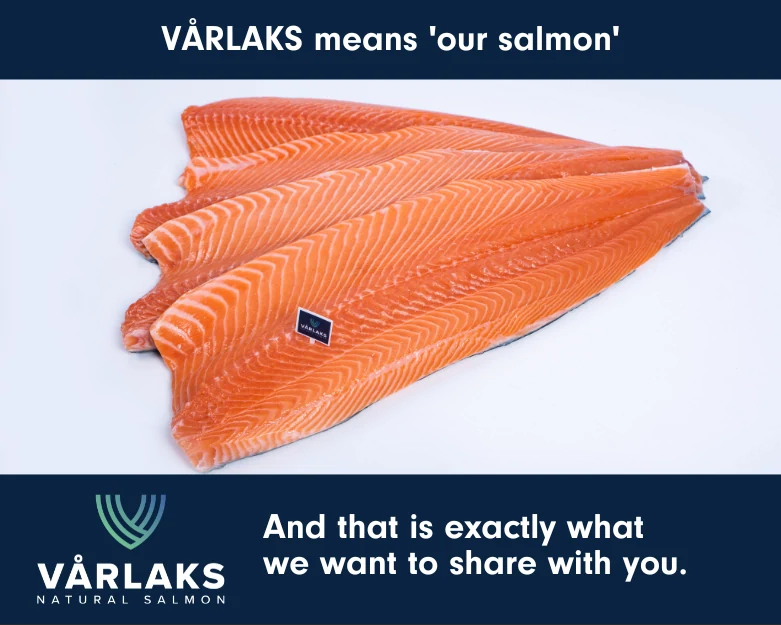This year’s market shock will test both buyers and sellers of salmon.
During the Crimean crisis, in early March 2014, SalmonBusiness’s sister publication iLaks warned that a black swan could hit the salmon market. A market characterized by “low supply of fish, rapidly growing demand and few opportunities to increase supply side in the coming years” was threatened.
In eastern Ukraine, Russia sponsored the war of local separatists in the country’s richest industrial region. In the south, the Russians annexed the Crimea Peninsula.
The world held its breath.
Black swan
The so-called Black Swan theory assumes that a surprising event with very large ringing effects will occur. It must be a rare event that is difficult to predict and is unlikely.
The term is frequently used in history, finance, science and technology, and often refers to a statistical extreme outlier – a statistical observation entirely outside of normal expectations, since nothing in history should point to this probability. At the same time, it must have the potential to cause very extensive consequences. Once a black swan has been identified, observers in the light of hindsight will seek to rationalise and explain it as if it could have been expected.

The theory was launched by author Nassim Nicholas Taleb in the book Fooled By Randomness which was published in 2001. He cited events such as the development of the internet, the PC, but also the outbreak of World War I and the attacks of September 11, 2001 as examples of black swans.
Escalated
The Crimean crisis escalated rapidly.
On July 17, 2014, flight MH17 from Malaysia Airlines was hit by a ground-to-air missile over eastern Ukraine. All the 298 onboard were killed. The West, the EU and NATO, placed the responsibility in the Kremlin. With heavy financial sanctions in response.
In early August, President Putin closed Russia’s borders for a wide range of food from the West. This included farmed salmon. Russia was at this time Norway’s largest buyer of salmon, with an import of more than 100,000 tonnes annually.
With the largest buyer out of the market, the salmon price fell heavily. In the late autumn, the spot price stood at EUR 3.5 – a fall of 40 per cent from the top quotes in the first quarter.
Six years later, the Russian market is still closed to salmon from European, American and Canadian farmers,
Absorbed
It looked like a black swan.
But not quite. The salmon market picked up again. Especially since the farming countries were not able to increase supply. The fallout of Russia was absorbed by increasing demand from other and new buyers.
If the crisis in Ukraine five years ago was a black swan, it was nothing against what we have seen this year. The outbreak of the coronavirus, its ripple effects, and not least the collective efforts by the international authorities to prevent the spread of infection, have built up a market shock that is unparalleled.
The so-called HoReCa segment, hotel, restaurant and catering, is normally a massive buyer of salmon. That segment has imploded. It’s almost gone.
Overseas markets have been greatly reduced as a function of the fact that most of the world’s air freight services are cancelled.
At sea and on land
Salmon farmers thank the gods for the coronavirus crisis to hit them at a time when they have seasonally low harvest volumes and free capacity in their cages. Salmon can stay for longer in the sea and don’t need to be harvested.
But the longer the fish stay in the sea, the bigger they get. There will be more salmon to sell. In a market that is already well supplied despite low sales volumes, salmon prices have fallen sharply, by 35 per cent, since January.
It is not just in the sea that stocks are increasing. A rapidly rising stock of salmon has taken up freezing stocks both in Norway and abroad. These fish will not go away. They will linger over the market for a long time.
Liquidity
For salmon farmers, they respond to crises in the usual way. They freeze in fish. Several of them have cancelled or postponed dividends. Some have also extended the credit times to their suppliers.
Cash is king. Here it is important to “keep the powder dry”.
If it gets really bad, they have to pull the emergency brake. Then they must reduce stock and get external financing.
We’re not there yet. And we may not get there either.









